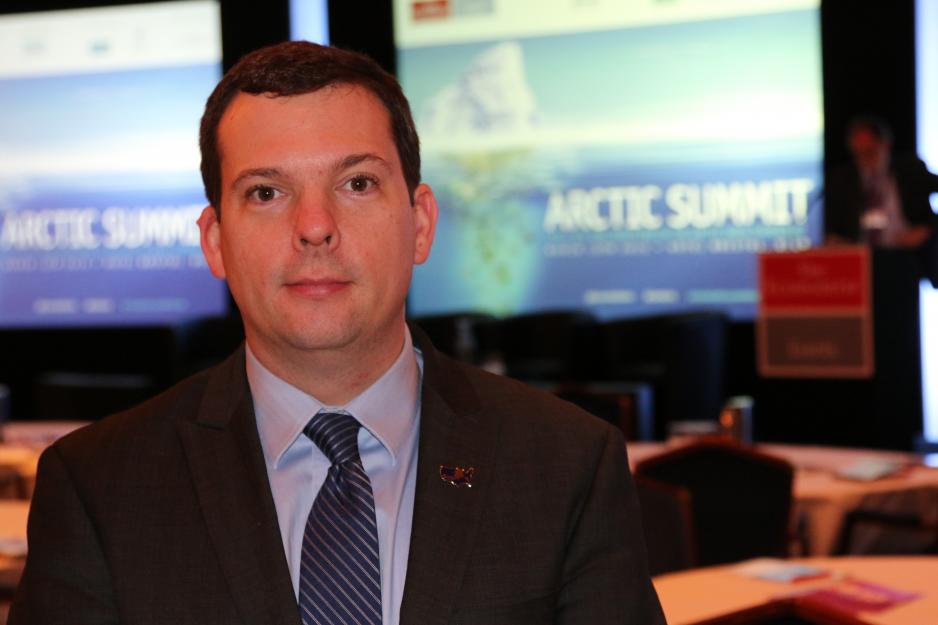- Alaska Will Get Too Wrapped Up in the Arctic Council

Now what do the Alaskans really think about the U.S taking over the chairmanship in the Arctic Council? Is it all good news, or will there be disputes? We asked Institute of the North's Nils Andreassen, who is also a member of the Alaska Arctic Policy Commission (AAPC).
In just about a month's time the United States will be taking over the chairmanship in the Arctic Council from Canada.
Economy and living conditions of Arctic communities, Arctic Ocean safety, security and stewardship; and climate change mitigation and adaption will be the top priorities, according to Admiral Robert J. Papp, the U.S. Special Representative for the Arctic.
These things definitely matter a lot - also for Alaska; the largest state in the U.S when it comes to area. The state is located in northwestern North America, and borders only to Canada.
Political controversy
Most of the communities in the Arctic Alaska have no highways, and can only be reached by aircraft or snowmobile, if the weather allows. Originally the region were inhabited by various Alaska Native groups, living off hunting, fishing or whaling. The region is also the location of the Arctic National Wildlife Refuge (ANWR).
The question of whether to drill for oil in the ANWR has been an ongoing political controversy in the U.S since 1977.
In January, this year, President Barack Obama announced a comprehensive plan to protect ANWR, and he’s calling on the Congress to preserve it for future generations.
- The AAPC’s work is even more critical after the president’s assault on Alaska, Senator Lesil McGuire – and Co-Chair of the commission - said at the press conference after AAPC submitted its final report six weeks ago.
- Nils Andreassen; what are your thoughts on the U.S. taking over the chairmanship in the Arctic Council?
- It’s funny to know what exactly to say, because you want to be supportive on a national agenda. I would say that the U.S. proposal for their teams, their goals and their projects, are consistent with their national interests. But I think it’s important for Alaska and others to understand that it makes sense, because Alaska has it’s own agenda and it’s own interests in seeing tangible results for its northern communities. So as hopeful and glad I am for the U.S chairmanship, and the tension that it draws to the arctic, I don’t want it to distract us from actually doing good work and seeing change, Nils Andreassen, Executive Director of the Institute of the North, says.
Arctic Council - only for diplomacy
- I think the real danger is that people can put together all things "Arctic" into Arctic Council, and Arctic Council is only for international diplomacy. There is also domestic decision making, there is a national strategy for the Arctic region, there is a implementation plan, that actually are going to make a difference, for Alaskans. Federal agencies will be responding to this - backfiring this - outside of the Arctic Council, but I think we are going to forget about it for two years. I think federal agencies will do their thing, and Alaska will get too wrapped up in the Arctic Council, Andreassen says.
Last week the Executive Director of the Institute of the North participated at the The Economist's event Arctic Summit 2015 in Oslo.
Andreassen has background in rural and international development, Alaska policy issues and leadership development. This fit within the Institute's mission to research commonly-owned lands, seas and resources while educating and engaging Alaskans in the responsilitities of that ownership.
Wants to be in front
In the final report the Arctic Alaska Policy Commission recommends the state to take several steps to enchance Arctic communities.
The recommandations center around four areas: economic and resource development, infrastructure, healthy communities, and science and research.
When the preliminary report was released a year ago, the commission stated that Alaska wants to sit in the driver’s seat when it comes to taking decisions about the Arctic. However, finding the money for the improvements could be a challenge, according to the daily newspaper Fairbanks Daily News-Miner.
Admiral Robert J. Papp, the U.S. Special Representative for the Arctic, has promised that the country will put the council “on steroids” when U.S takes over.
- The future of America is inextricably linked to the future of the Arctic, Papp stated at the Arctic Circle Assembly in Reykjavik, Iceland, in October.
